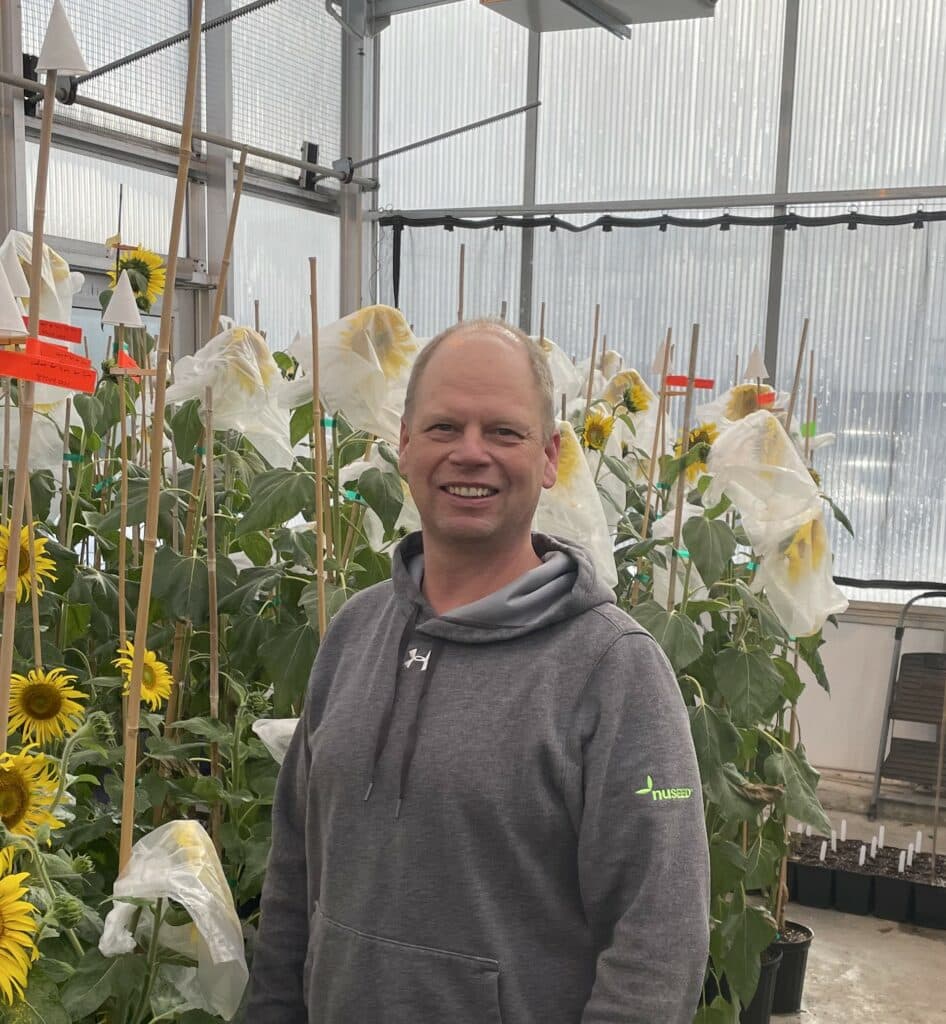Jon Holte, sunflower breeder with Nuseed, started his journey in agriculture when he was a child working on his grandfather’s farm. Once he realized this was the field he wanted to pursue a career in, Holte earned his bachelor’s degree in biology from Concordia College in 1994.
“My adviser from college had a friend who was a plant breeder,” shares Holte. “When I was getting ready to graduate, he put me in contact with the plant breeder. That’s how I started my career in plant breeding, research
and agriculture.”
Holte’s career included a number of years with a plant breeding program outside of Nuseed. There he worked on several different crops at one time. Now, with Nuseed, Holte enjoys his work on sunflower breeding. “When I noticed there was a position open in sunflower breeding at Nuseed, that really sparked my interest,” says Holte. “It’s challenging day in and day out to really improve the genetics of the sunflower, but getting to help growers across the northern hemisphere is really rewarding.”
Before he started his role with Nuseed, he was excited for this opportunity. “It seemed like a great opportunity to be one of the few sunflower breeders in North America. I’m working on developing new sunflower hybrids for the growers. I look forward to really being able to make an impact on the growers,” comments Holte.
Holte’s research with sunflowers is based in the U.S. but is used across North America and Europe. “Globally, you get to help improve the genetics and products that are for farmers across the world,” says Holte.
While the job is not easy, it is very rewarding, and that makes it all worth it for Holte. “The biggest struggle is Mother Nature. Every year it is a new challenge to overcome. You have to try to develop products that are stable over multiple years, different environments, different climates, different weather patterns and seasonal effects. How do you take that all into account and overcome that?” shares Holte.
Mother Nature certainly impacts everyone in agriculture. Holte plans to use his career to not only mitigate those impacts, but also improve sunflower crops overall.
